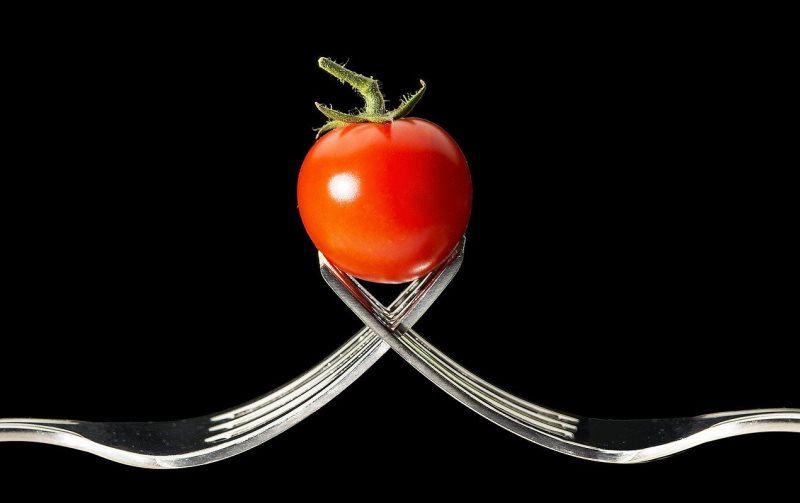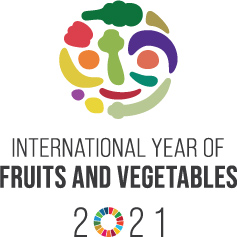Will 2021 Help Settle Tomato Fruit Vs Vegetable Debate?

The United Nations has announced the year 2021 as the International Year of Fruits and Vegetables. The Food and Agriculture Organization (FAO) has been active force behind this announcement. The motivation behind declaring 2021 as the International Year of Fruits and Vegetables (IYFV) is to raise global awareness on the crucial role of fruits and vegetables in human nutrition, food security and reducing food loss.
This UN initiative is directly linked to achieving the Sustainable Development Goals (SDG) especially:
- SDG 2 – End hunger, achieve food security and improved nutrition and promote sustainable agriculture.
- SDG 3 – Ensure healthy lives and promote well being for all at all ages” and
- SDG 12 – Ensure sustainable consumption and production patterns. And also,
- SDG 8 -Decent work for economic growth.
IYVF will work to promote research and education in all branches of horticultural science and in fixing fragile food system so that they can be more resilient, inclusive and sustainable. This can be done by empowering stakeholders, youth and women through knowledge building and skill development. With some luck, we may also be able to put to rest the debate on whether tomato is a fruit or a vegetable! It needs to be noted here that 2016-2025 is the ongoing UN Decade of Action on Nutrition and 2019-2028 is the UN Decade of Family Farming.
 IYFV will work within four main categories: Advocacy and awareness raising, knowledge creation and dissemination, policy making as well as capacity development and education. This global initiative is aimed to make people aware about nutritional value of fruits and vegetables so that they can consume sustainably. Avoiding intake of food with high levels of fats, sugar, salt and increasing daily consumption of a minimum of 400 g of fruits and vegetables is a great way of preventing most non-communicable diseases.
IYFV will work within four main categories: Advocacy and awareness raising, knowledge creation and dissemination, policy making as well as capacity development and education. This global initiative is aimed to make people aware about nutritional value of fruits and vegetables so that they can consume sustainably. Avoiding intake of food with high levels of fats, sugar, salt and increasing daily consumption of a minimum of 400 g of fruits and vegetables is a great way of preventing most non-communicable diseases.
Fruits and vegetables are cornerstone of a healthy, balanced and varied diet. They are good source of vitamins, minerals, dietary fiber, beneficial phytochemicals and help prevent various health disorders. Some of the latter include micronutrient disorders, cancer, diabetes and heart diseases. Consuming fruits and vegetables provide strength and immunity and are important for growth and development of children. They are also linked to lower risk of anxiety, depression, obesity and are known to promote gut health.
IYFV for reducing food wastage
Food loss and waste in fruits and vegetables is a great matter of concern as the major loss of upto 40% is seen during the supply chain. Reduction in food loss will improve food security and nutrition and will lead to reduction in greenhouse gas emissions. This will further lower pressure on land and water resources and increase economic output and development.
IYFV provides opportunity to enhance infrastructure and improve farming practices. Challenges of promoting healthy eating habits require coordinated action to curb malnutrition. It is crucial that nutritious, affordable and safe food reach to all people particularly to the vulnerable one’s who are in serious need of it. The ongoing COVID-19 pandemic has severely affected all of us. It is also having socioeconomic impacts at global level. The IYFV is mindful of will provide opportunities and work to help the world overcome this challenge.
Farmers usually face risks such as fluctuation in rainfall pattern, low demand of crops, price volatility and rising debts and this dramatic health emergency has increased the challenges they face. To control the spread of coronavirus, governments have announced nationwide lockdowns for several weeks. Lockdown lead to shortage of labour and equipment. This can trigger a food crisis and result in decrease in stock of food items such as rice, flour, oil and sugar. To restore food security and increase economy, IYFV will work to make people aware about the value of all food resources.
Fruit and Vegetable Farming and India
India’s diverse climatic conditions helps in cultivation of a vast variety of fruits and vegetables. The production of fruits and vegetables on a large scale helps farmers as it offers multiple opportunities to export fruits and veggies to different countries. India is second largest fruit and vegetable producer in the world after China. Horticulture contributes about 30% of GDP in agriculture. India is a leading producer of mangoes and banana.
State wise, Andra Pradesh and Uttar Pradesh are the largest producer of vegetable and fruit in India, respectively. India is the largest producer, consumer and exporter of spices in the world. India is also known as Fruit Basket of world. Uttrakhand is known for the production of temperate fruits. Sikkim is the first organic state of India. Ghost Pepper, the hottest chilies of the world, are found in Nagaland and it is certified by Guinness Book of World Records. Odisha produces 80% of the country’s Kewda flowers which are used in extraction of essential oil. 45% of India’s total litchi production is seen in Bihar. Jharkhand is the principal producer of Bael fruit in India.
Tomatoes are botanically fruits and legally they are labelled as vegetables by US Supreme Court due to trade tariff in the 1800’s. Apples provide more energy than coffee and watermelon contain around 90% water. Broccoli contains more proteins than steak as it doesn’t have saturated and trans fat. Kiwis offer more Vitamin C than oranges. The stalk or skin of a fruit has more nutritional value than the actual fruit. Fruits like apples and cherries belong to Rose family. Potatoes are the best source of potassium than bananas. IYFV, however, promotes all fruit and vegetable diversity as they are vital part of a balanced diet.




♥️♥️
Nice article
Great
Nice article
Excellent very well written thanks for such Information.
Very informative
It is a well written article that reminds us of what we often take for granted. Keep it up.
Excellently written
Very informative and well written!!